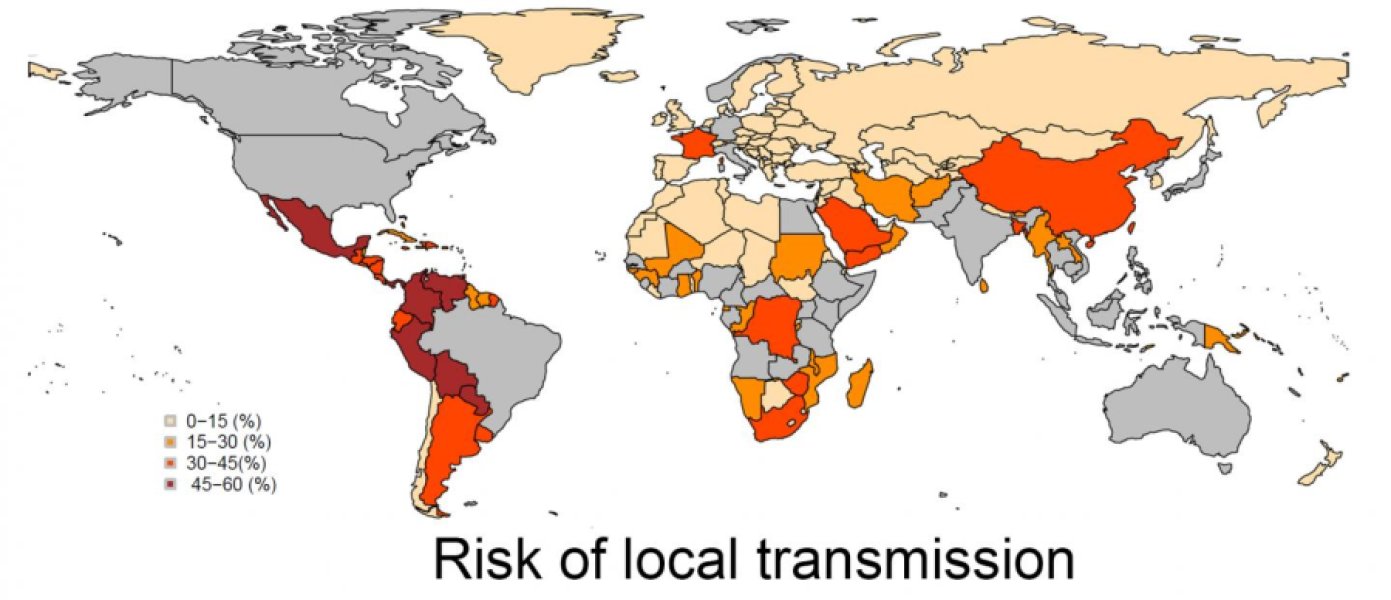A new tool by Japan-based researchers predicts the risk of Zika virus importation and local transmission for 189 countries.
Countries that are well connected to/from Brazil have been at particularly high risk of importation, according to the analysis by a team of researchers from the University of Tokyo, Hokkaido University, and the Japan Science and Technology Agency.
However, subtropical and tropical countries with a history of dengue and other mosquito-borne diseases have the greatest risk of the virus spreading once it arrives in the country. This means many nations in South and Central America, as well as the Caribbean, face the highest risk of infection and should take measures to prevent mosquito bites, according to the study that was recently published in Peer J. France, southern parts of China and the United Arab Emirates also fall into this category having experienced previous outbreaks.
"We have shown that the predicted risk of local transmission was frequently seen in tropical and subtropical countries with dengue or chikungunya epidemic experience, while the risk of importation was more scattered around the world," said Hiroshi Nishiura, a professor of hygiene at Hokkaido University.
The Zika virus was first found in Uganda in 1947, and then detected in 39 countries around the world, including the United States, India and Japan. In early 2015, a Zika virus outbreak in Brazil was soon followed by a high number of microcephaly cases, in which babies are born with abnormally small heads. The link between the two is not definitively understood, but is strongly suspected. Since the Brazil outbreak, Zika virus has been detected in an additional 39 countries, including in Europe, the U.K., South America and Asia.
Many researchers are working to anticipate the virus's potential spread, especially given that it can be carried by lightly infected travelers and then passed onto others by mosquitos. Global concern and attention are elevated with thousands of visitors set to attend the Olympics in Rio de Janeiro this summer.
